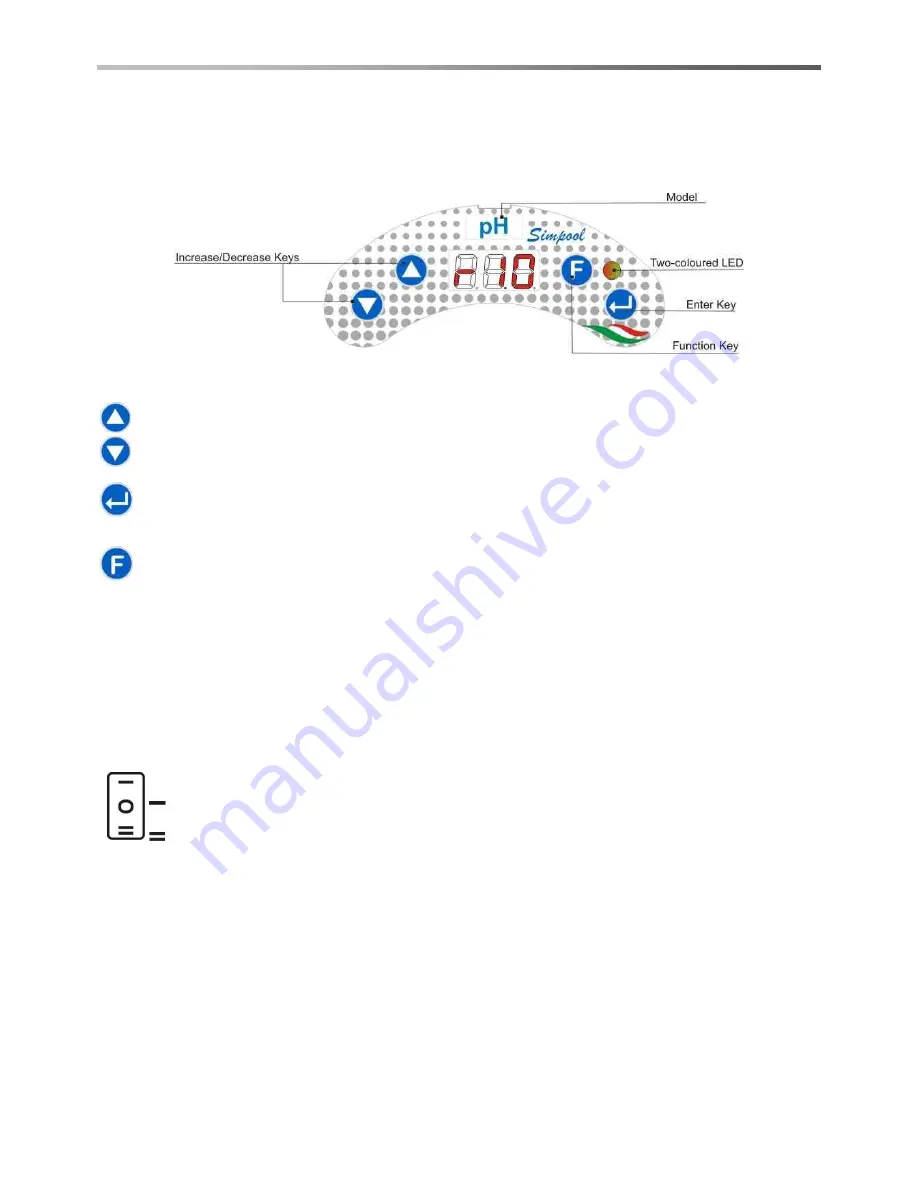
Simpool pH model
INSTRUCTION AND MAINTENANCE MANUAL
Programmable digital peristaltic pump
ENGLISH
ADSP7000407
rev. 1.2
27/03/2015
49/313
3.0 PROGRAMMING
3.1
MAIN
FEATURES
F
IG
.
9
-
U
SER
I
NTERFACE
The Increase/Decrease keys allow to change the numerical values and scroll through the lists of options for
all the available menu entries.
The Enter key allows to access and exit from the various entries of the submenus. Pressing the key for 3
seconds allows, from the Initial Menu, to access the Programming Menu and to go back to the Menu one
level up from the main entries on a Menu;
The Function key allows to browse through the Menu's entries.
By pressing the key for 3 seconds from the initial page, you can access the User Menu;
T
WO
-
COLOURED
LED
The two-coloured LED displays the following conditions:
Steady green
: the pump is active;
Flashing green
: the pump is dosing;
Steady red
: the pump is off;
Flashing red
: there is an alarm;
Steady orange
: if you are browsing the Programming Menu;
Flashing orange
: Pump priming in progress;
The switch has three positions:
: the pump is active (ON)
O
: the pump is off (OFF)
: the pump is priming (MOM)
The MOM position is monostable, therefore after setting the switch to MOM, when it is released the
switch automatically goes back to OFF.
The pump doses for 60 seconds at the maximum speed; if the MOM key is pressed again before the
60 seconds elapse, the priming is interrupted.
OPERATION
The pump allows to dose a chemical product in a proportional manner to increase (
Alkaline
operation) or reduce
(
Acid
operation) the pool's pH value. Dosage may be subject to the status of the recirculation pump (Inhibiting
Signal).
The pH value is acquired by an electronic pH probe that needs to be calibrated and requires periodic maintenance.
Dosage is based on a cyclical pattern: at each cycle the pump is activated for a set time in relation to the difference
between the pH value acquired and the set pH Setpoint (from 5.00 to 9.00 pH). The pump's dosing time (Ton) is
calcula
ted proportionally (see [3.1]) within the range of values indicated as “
Proportional Band
”.
The following figure (Fig. 10) reports the operating diagrams for the acid and alkaline modes.











































